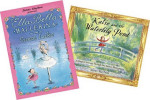Beth Revis
(Puffin/Razorbill)
Seventeen year-old Amy’s parents have decided to be cryogenically frozen, trapped in time, in order to be taken on a 350 year- long space journey on a mission to investigate and colonise a new planet. As a high-ranked US Army office and a genetics specialist, they are essential to the mission. Amy, although considered a non-essential, decides to follow them. But 50 years short of her time, Amy is woken up, left to thaw and most likely die. But sixteen year-old Elder finds her and rescues her. Now she is stuck on the space ship, strikingly different from its mono-ethnic inhabitants, treated as a freak. Amy has never felt so alone and the weird going-ons on the ship are not helping to make her comfortable. Elder wants to protect her, but can she really trust him? After all, he is next in line to become ruler of the ship, after Eldest; has he really got Amy’s best interests at heart? As more of the Frozens get attacked, more sinister details about the way of life on the ship are uncovered and Amy finds herself even more at risk…
I am no fan of sci-fi; in fact I run away from it usually. But although this takes place on a spaceship and there a few spaceship related episodes, this is, weirdly, not really a sci-fi book. There are no new planets (although there is a lot of talk about Centaur-Earth, we never get to see it), no aliens, no real spaceship action. The ship, Godspeed, just provides the perfect small, controlled, impossible-to-escape setting in which a dystopian novel can flourish, and it does so successfully. Spoken in two voices alternatively, Amy and Elder, the story is well paced, and the writing is good, with a few bits particularly effective, such as this one, which really stroke a chord with me:
I turn away letting Doc’s words drag me from thoughts of the girl with the sunset hair. Eldest taught me about ancient religions that worshipped the sun. I never understood why – it’s just a ball of light and heat. But if the sun of Sol-Earth swirls in colors and lights like that girl’s hair, well, I can see why the ancients would worship that.
I enjoyed the way that as we watch Amy as she tries to make sense of life on the ship, we get little snippets of what is really going behind the scenes. The following quote, for example, altered my view of Eldest completely. And this how the story often works; we learn things indirectly, and because of our own knowledge of world history (which Elder is obviously missing), we get to understand the implications well before he does, and are left to watch him make, often, the wrong assumptions:
“He sounds like a regular Hitler to me”, Amy mutters. I wonder what she means by that. Eldest has always taught me that Hitler was a wise, cultured leader for his people.
I expect Elder’s slow realisation could potentially be frustrating for some readers. We do get to work things out and are left to wait while he figures it out. But I don’t think that is a bad think as it emphasises one of the themes of the book: trust, belief – why would you doubt something you have been told your whole life?
The aim of a dystopian novel is to make us think, to encourage the reader to look critically at one’s own society, offering us an insight of what could be in the future. Across the Universe certainly does that by dealing with many interesting and complex issues about leadership and power:
* is it right to take away freedom of choice and of speech for the greater good, for the survival of the race?
* how far should one be allowed to go to ensure harmony within society?
* are deception and over-control acceptable, again to ensure there is no room for rebellion?
* is conflict within society something that should be feared, and avoided at all cost (and in the case of this story, the costs are drastic) or does some amount of rebellion not illustrate a healthy society?
I did question a lot while reading it. Eldest and Orion’s points of view were particularly challenging, and despite the wrongness of the basis of the society on Godspeed, you can’t help but see the logic behind its rationale. It is chilling to say the least.
Interestingly unlike many dystopian YA novels, I felt that this one did not have the potential romantic involvement of the two main characters were not at the core of the plot. It is part of the story, but it is not central to the plot. I feel it is a shame that the cover misleads potential readers into thinking this is a romantic read. Because it really is not, and it is much more than that.
This is a good debut novel from Beth Revis and a convincing dystopian novel, published in an increasingly saturated market. Worth checking out.
Sent for review by publisher






What an insightful review. I hope I dont pinch any of your phrases as I am reading it at the moment. I am not a big Sci-fi fan but I think this book is sci-fi for the sci-fi hater lol